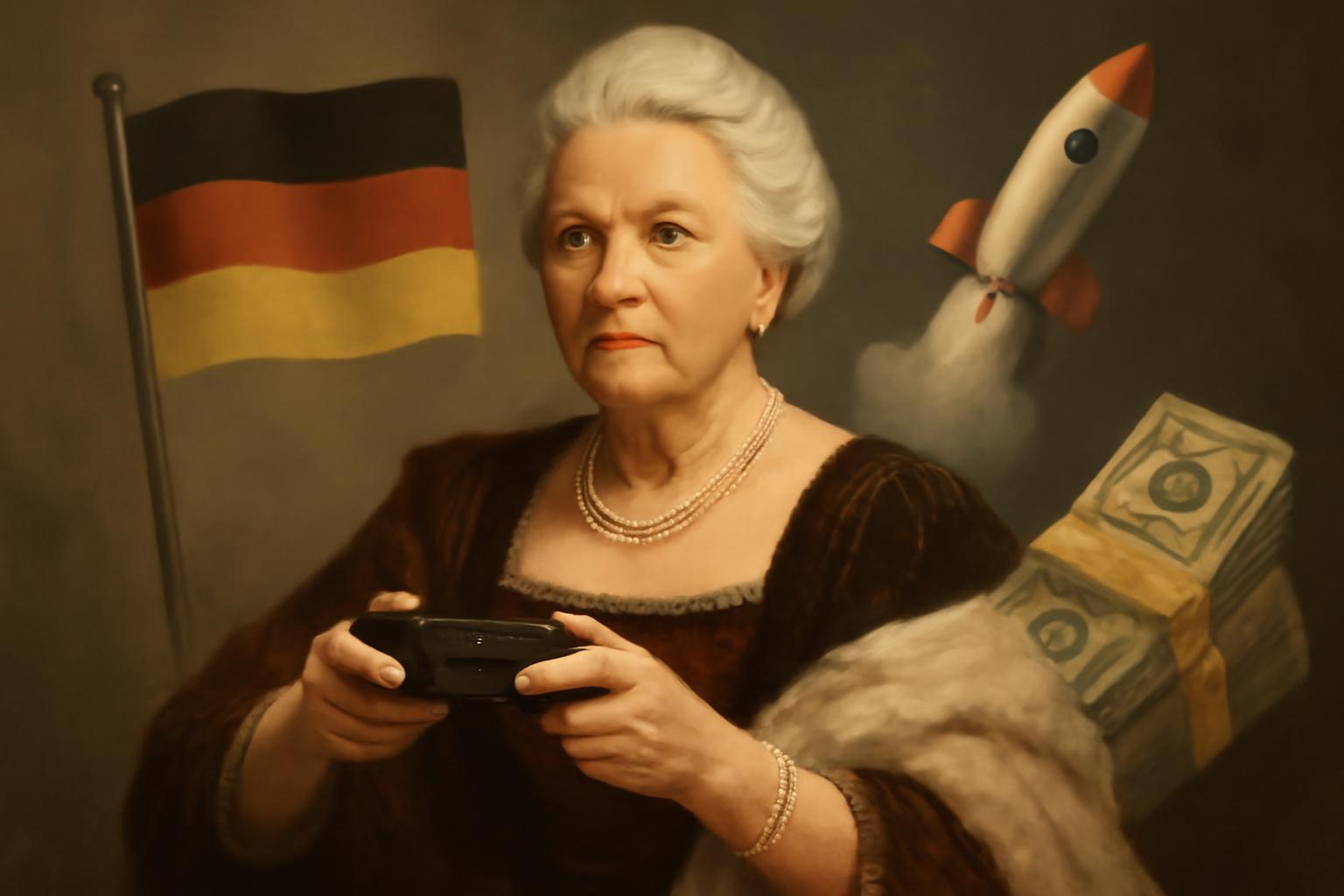Gaming has become a mass phenomenon across generations, a truth Gamescom in Cologne lays bare with the rise of the so‑called “Silver Gamers.” At a Pithead Studios stand, Jenny Pankratz showcased their RPG Cralon, and her and her husband Björn’s leap from social pedagogy to game development signals nothing less than the triumph of talent over pedigree in this era. Since 2020, our nation offers federal funding to game developers; Pankratz notes that while support is indispensable, it must be fast and straightforward to access because money, once spent, must come back. The opening scene was graced by Research Minister Dorothee Bär, who hints at renewed funding under the new government and a boosted budget, a sign of greater predictability for those who imagine profit in pixels. Germany’s potential to remain internationally competitive is championed by Bär, who reminds us that we are currently the fifth largest market and could do much better; the competition is vast, with Saudi Arabia and Qatar pouring in capital as the others invest in the same fever dream. Felix Falk, head of Game, exudes cautious optimism that German companies can still leap in and emerge swiftly when the right framework is in place.
The industry’s undulations mirror a broader pattern: the pandemic inflated demand as people lingered with screens, while 2024 brought a modest dip due to weaker console sales and a lull in major releases, followed by a rebound in subsequent periods. A Bitkom study notes that more than half of Germans play video games, with a striking demographic shift—the “Silver Gamer” cohort expanding rapidly, one in five people over sixty dipping into play at least occasionally. The average player sits around forty, and the fastest‑growing segment is the older crowd on mobile devices. On the hardware front, the Nintendo Switch 2 has entered the stage, while giants like Microsoft parade handhelds such as the ROG Xbox Ally at Gamescom, underscoring Germany’s stature as a gaming market. Taken together, Gamescom reinforces the truth that gaming is a global, multi‑billion‑euro growth story, a barometer of where culture and commerce meet in the digital age.
One must applaud the spectacle, yet one cannot pretend it is merely a charming eccentricity of the middle classes. This is a carefully choreographed dance between public money and private ambition, with ROI as the only true aristocracy left standing—speed, cleanliness of process, the ability to recoup investment, and the discipline to turn fervent hobbyists into dependable revenue streams. The funding pause was not a tragedy but a reminder that even the state cannot resist the lure of measured outcomes; now the coffers reflow, the budget swells, and the nation proclaims its readiness to compete with the Gulf behemoths on their own terms. The “Silver Gamers” demonstrate that aging is a market asset, a march of experience into the digital parlors, while the rest of the populace is drawn into the cult of the next gadget—the Switch 2, the Xbox Ally—proof that status and consumption travel hand in hand in this era.
If Germany is to deserve the laurels of a genuinely cultured economy rather than a mere consumer of dazzling screens, the governance of this industry must be swift, exacting, and adorned with taste. Fund the rare, the proven, the craftspeople who can deliver enduring work; stamp out the noise of fleeting fads that politicians mistake for progress; and let the policy framework act with the brisk manners of a well‑born court—clear, decisive, and unashamedly aimed at results. The Gamescom year confirms a reality: we are central to a global digital cathedral, a market where luxury of capital, clarity of purpose, and mastery of craft must converge. And so I watch the parade with a practiced eye, confident that if our nation’s elites stitch together speedier funding, smarter incentives, and a spine of intellectual restraint, we will not merely follow the world’s lead—we will set the tempo for how culture, commerce, and games entwine for the ages.
